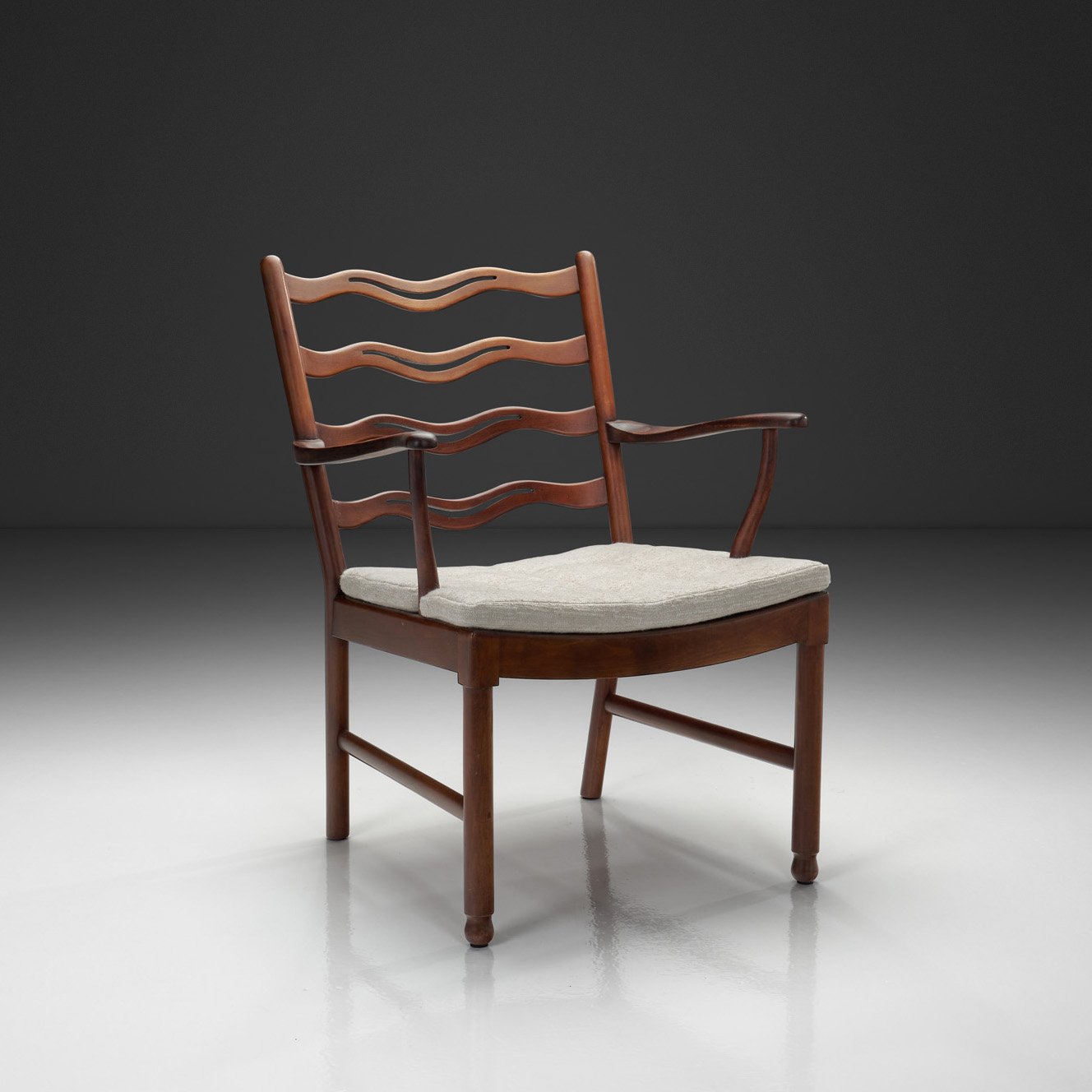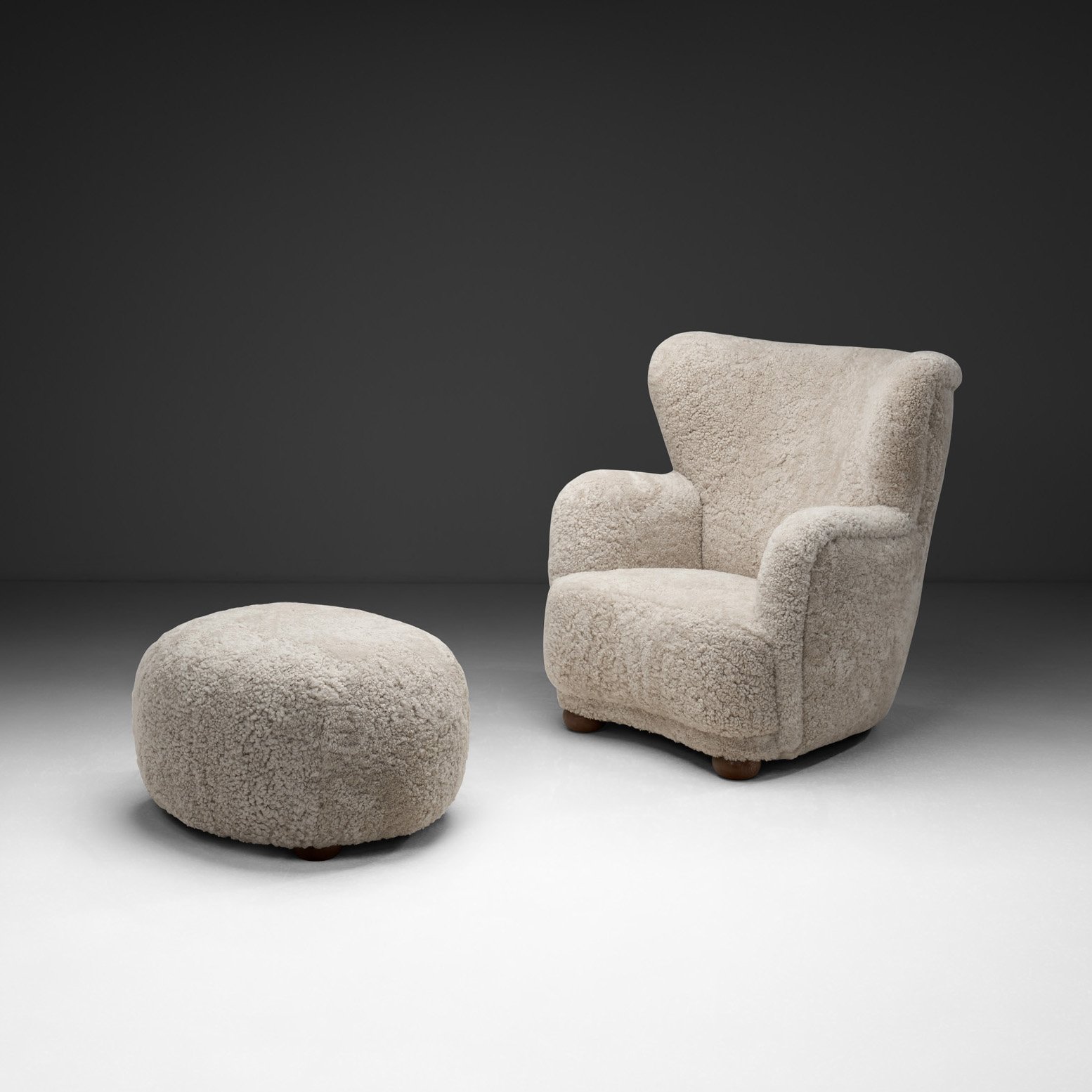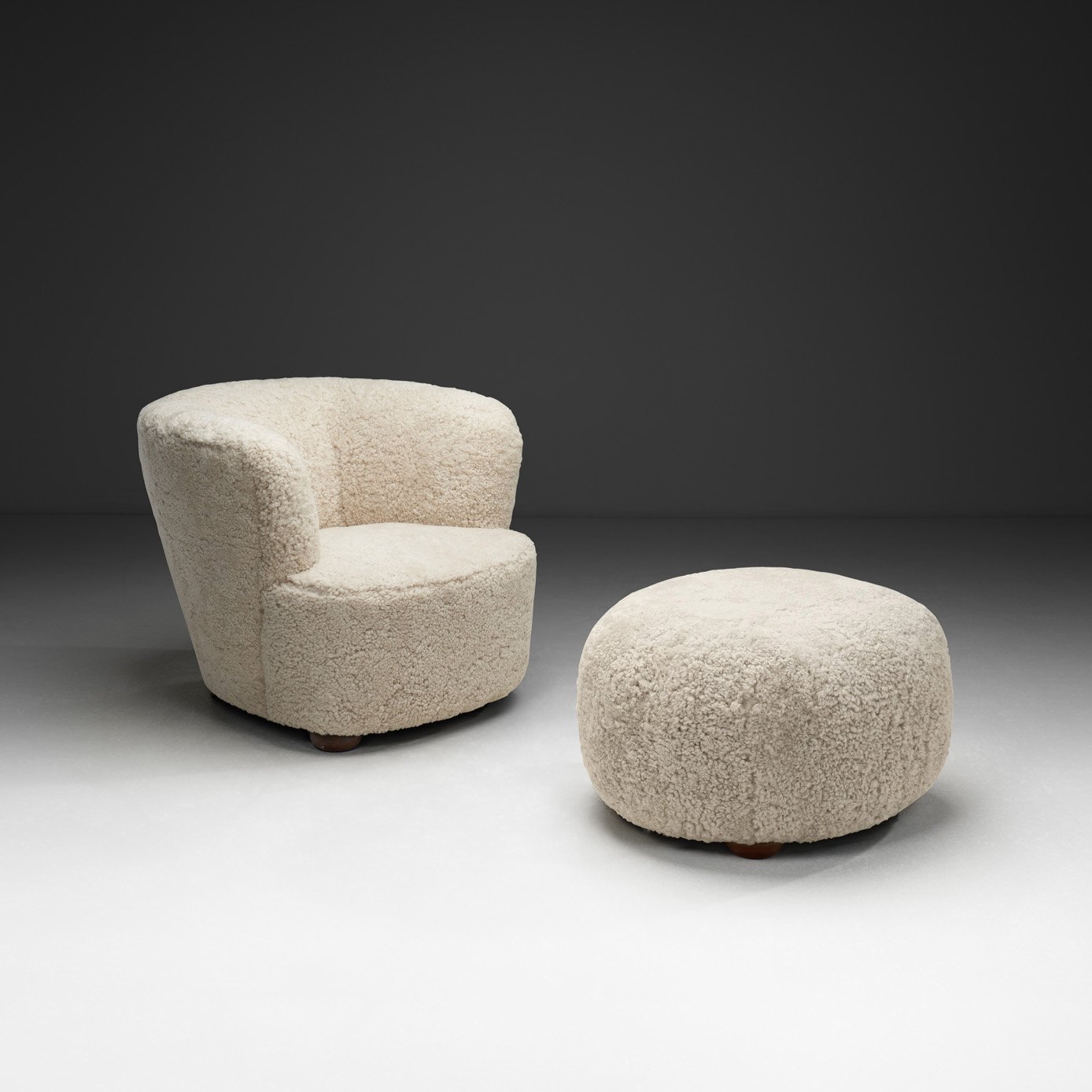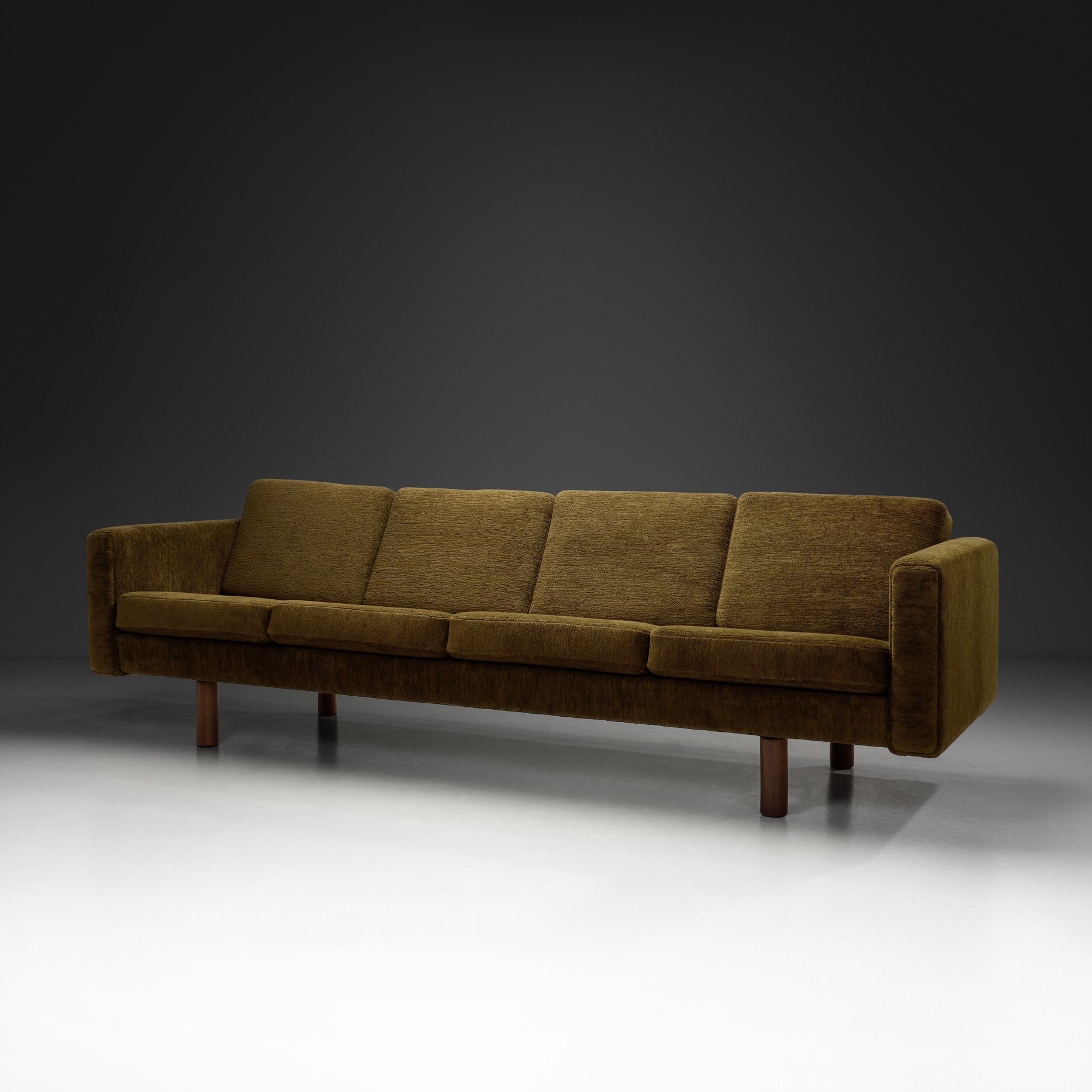Elm Wood Armchair by Arne Hovmand-Olsen for J.L. Møller Møbelfabrik, Denmark 1947














Elm Wood Armchair by Arne Hovmand-Olsen for J.L. Møller Møbelfabrik, Denmark 1947
REQUEST PRICE HERE
Price category: 5,000 - 7,500 usd / eur
This armchair was designed in 1947 by Arne Hovmand-Olsen (1919-1989) for J.L. Møllers Møbelfabrik in Aarhus, Denmark. It is one of the earliest designs created by Hovmand-Olsen, and one of the very first chairs that was produced by Niels Otto Møller, the founder of J. L. Møllers Møbelfabrik. After Hovmand-Olsen's first pieces for J.L. Møllers, the young designer had a successful career in which he could extensively research different design possibilities, and their best creative outcome, through the use of exceptionally crafted wood.
Clean and pure lines define this chair, coupled with expert craftsmanship and delicate research into proportions, materials, and the human body shape to adapt this design to modern-day needs. Like many of his Danish contemporaries, Hovmand-Olsen favoured high-quality, beautifully-grained woods like elm and teak. The streamlined design of the wood structure immediately stands out for its pronounced curved and straight lines, evoking an airy feel to the chair’s construction. The curved wooden sides perfectly pair with the curved seat, and its texture and colours pair exceptionally well with the dark elm. The curve of the arms and legs - formed of a single piece of wood - defines the look and is perfectly balanced by the straight stretchers connecting the legs. Every functional part, including the stretchers between the legs, also serves an aesthetic purpose. All the lines are rounded out and complement the slight visual curves of the wood. The fabric accentuates the raised angle of the seat and lightly bent back, while the tufted buttons create depth. This armchair falls into the category of the so-called biomorphic mid-century, which describes the furniture that relished organic, curved, smooth surfaces - a design that was moulded into the shapes of natural occurrences and which was a lively contrast to the more austere machine aesthetic of the Bauhaus. In line with this sentiment, this armchair entirely focuses on its solid wood material and well-crafted, upholstered seat.
Characterised by functionality, simplicity and clean lines, Arne Hovmand-Olsen’s design is all about harmony. J.L. Møller Møbelfabrik is one of Denmark’s largest hardwood factories, and the company’s craft has evidently made its mark throughout 20th century design.
Condition:
In good vintage condition. Wear consistent with age and use. The chair has been reupholstered recently in a premium fabric. Each of our items can be re-upholstered by our in-house atelier in a fabric of choice. Please reach out for more information.
Dimensions:
23.43 in W x 29.92 in D x 29.33 in H; Seat height 15.55 in; Seat depth 15.75 in; Arm height 23.23 in
59.5 cm W x 76 cm D x 74.5 cm H; Seat height 39.5 cm; Seat depth 40 cm; Arm height 59 cm
About the Designer:
Arne Hovmand-Olsen (1919 – 1989) was born in 1919 in Kirkeby Sogn, Denmark into a family working in agriculture. He quickly developed an interest in drawing and handiwork. Hovmand-Olsen started his career in 1938 by an apprenticeship as a cabinetmaker for P. Olsen Sibast, where he was sent by his family. Upon the completion of his apprenticeship in 1941, Arne joined a furniture designing school in Aarhus to fulfil his dream of designing furniture. Once he finished his training program, he founded his own workshop, and began designing modern furniture with clean lines and simple forms for leading manufacturers, such as Bramin and Mogens Kold. His style is very much in the organic, natural style that defines mid-century Scandinavian furniture. During the 1950s and 60s there was a huge demand for Danish furniture and design throughout Europe and the US, this led to Hovmand-Olsen’s work becoming recognized and coveted internationally. His designs quickly gained great success: he not only sold his furniture in Denmark, but also in the United States where he became very popular. His workshop closed during the 1970s due to illness. ~H.












